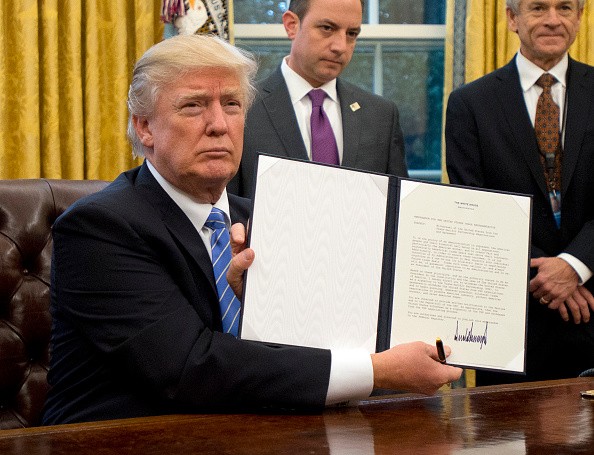While Trump pulled the U.S. out of the Trans-Pacific Partnership (TPP), China is setting its sights to replace America in its role as the global economic leadership. But experts and analysts say that China is still far from qualified to fill in the shoes.
Experts say that China's economy is still riddled with trade barriers, especially in the investment and services sectors at the forefront of global trade negotiations. In addition, it is governed by often vague policy and short on property-rights protection.
"I'm bemused by President Xi Jinping's waving the free-trade banner at Davos when China is still so far off the mark. Most people in business who understand the market would not say China represents the next step in market opening," said Alan Oxley, a former Australian trade negotiator and chairman of the Australian APEC Study Centre at RMIT University in Melbourne.
Last week, the American Chamber of Commerce released its annual survey showing that most American companies felt "less welcome" in China than before. About 25 percent of companies are considering shifting to other countries because of concerns about the regulatory environment and higher costs. European and Japanese companies have the same concerns.
China has been advocating its own trade pact that excludes the U.S. The Regional Comprehensive Economic Partnership (RCEP) is composed of 16 member countries and would build on an existing trading bloc among Southeast Asian nations.
Experts say however, that the RCEP pales in comparison to the TPP.
China Cautious in Dealing with Trump
While the death of the TPP may seem like a great opportunity for China, but its leaders aren't exactly celebrating.
"It could be counted as good news for China that the pressure of TPP is now gone. However, there is great uncertainty as to whether China stands to benefit," said Tu Xinquan, a trade expert at Beijing's University of International Business and Economics.
Trump will likely continue to follow through with trade protectionism. And with a possible trade war erupting between the two, China is starting to view Trump as its "biggest enemy."
It may not exactly be smooth sailing for China, but the U.S. pull out from the TPP does present a great opportunity. It is up to China if it can move fast enough to make use of this advantage.



























